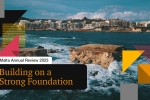The Markets in Crypto-Assets Regulation (MiCA) represents a significant step forward in the European Union’s (EU) approach to regulating digital assets by creating a harmonised regulatory framework for crypto-assets.
MiCA applies to natural or legal persons who are involved in the issuance, offer to the public and who seek admission to trading of crypto-assets, or service providers within the crypto-asset industry within the EU, subject to certain exemptions.
‘Crypto-assets’ are defined as “digital representations of value or of rights that have the potential to bring significant benefits to market participants, including retail holders of crypto-assets.” Under this Regulation, crypto-assets are divided into three main categories:
Asset-referenced tokens (ARTs);
E-money tokens (EMTs); and
Other crypto-assets which are not ARTs or EMTs such as utility tokens and Bitcoin.
MiCA establishes three regulatory regimes:
A regime for issuers of stablecoins (ARTs and EMTs)
A regime for issuers of non-stablecoins (other crypto assets)
A regime for Crypto-asset Service Providers (CASPs)
Issuers of Crypto-assets
MiCA requires issuers of all three categories of crypto-assets to publish a white paper that should include information about the issuer, the attributes of the crypto-assets, project timelines and any associated risks. The main objective of this white paper is to provide a uniform disclosure framework for crypto-asset issuers.
MiCA establishes further requirements for issuers of ARTs and EMTs which should be adhered to:
ART issuers must have their registered office in the EU and must seek authorisation from the national competent authority. The following ART issuers are exempt from seeking authorisation:
credit institutions; or
the value of the issuer tokens does not exceed a certain threshold; or
the offer is addressed solely to qualified investors and the ARTs can only be held by such qualified investors.
EMTs may only be offered or listed by authorised credit institutions or e-money institutions. Furthermore, EMT issuers can redeem EMTs for their holders upon their request at any time and par value, by paying in funds other than electronic money.
Crypto-asset Service Providers
Crypto-asset Service Providers (CASPs) are defined as any legal person or undertaking whose principal business is the provision of one or more crypto-asset services to clients on a professional basis.
In terms of MiCA, CASPs aiming to offer crypto-asset services such as investment advice, portfolio management and operating a trading platform to EU clients will need to:
establish a presence in Europe; and
obtain authorisation from the national regulatory body.
Will the Virtual Financial Assets Act remain relevant?
In November 2018, Malta was one of the first countries that introduced a framework to regulate aspects of crypto asset activity taking a very similar approach to that taken by MiCA - the Virtual Financial Assets Framework (VFA Act). In this light, the Malta Financial Services Authority (MFSA) was quick to ensure an orderly transition between the two frameworks.
The Virtual Financial Assets (Amendment) Regulation which was enacted on the 16th of April 2024 brought about certain changes aligning the pre-existing framework with MiCA. These include the removal of the role of the VFA agent, meaning that the obligation towards the MFSA now falls directly on the issuers seeking to register a whitepaper and individuals applying for a licence to offer a VFA service. The amending act also carved out ARTs and EMTs from falling within the scope of the VFA Act as they will be regulated solely by MiCA.
It is important for CASPs to be aware that following the 1st of August 2024, the MFSA will no longer accept licence applications under Article 14 of the VFA Act. Such a deadline has been established to align the CASPs’ regulatory standing in anticipation of MiCA’s implementation on the 30th of December 2024.
Additional Measures
MiCA is centred around protecting investors’ funds and to achieve this, it imposes further measures on crypto-asset issuers. For instance, the EMT issuers are expected to have in place the necessary measures to safeguard the customers’ funds, while the ART issuers are obliged to keep a reserve of assets matching the risks reflected in the liabilities they might incur against holders of ARTs. Issuers and CASPs must ensure that all the information communicated must be fair and consistent with the whitepaper they publish.
The introduction of MiCA is simply the next step in the evolution of Malta’s regulatory approach to crypto assets within the context of a relatively developed local crypto asset ecosystem including a knowledgeable regulator and experienced service providers.
How can we help?
Our regulatory team is experienced in advising on initial and ongoing obligations associated with holding a MiCA authorisation in Malta and is well-positioned to help you understand whether Malta is the right domicile for your crypto-asset related activity.
Contact us















